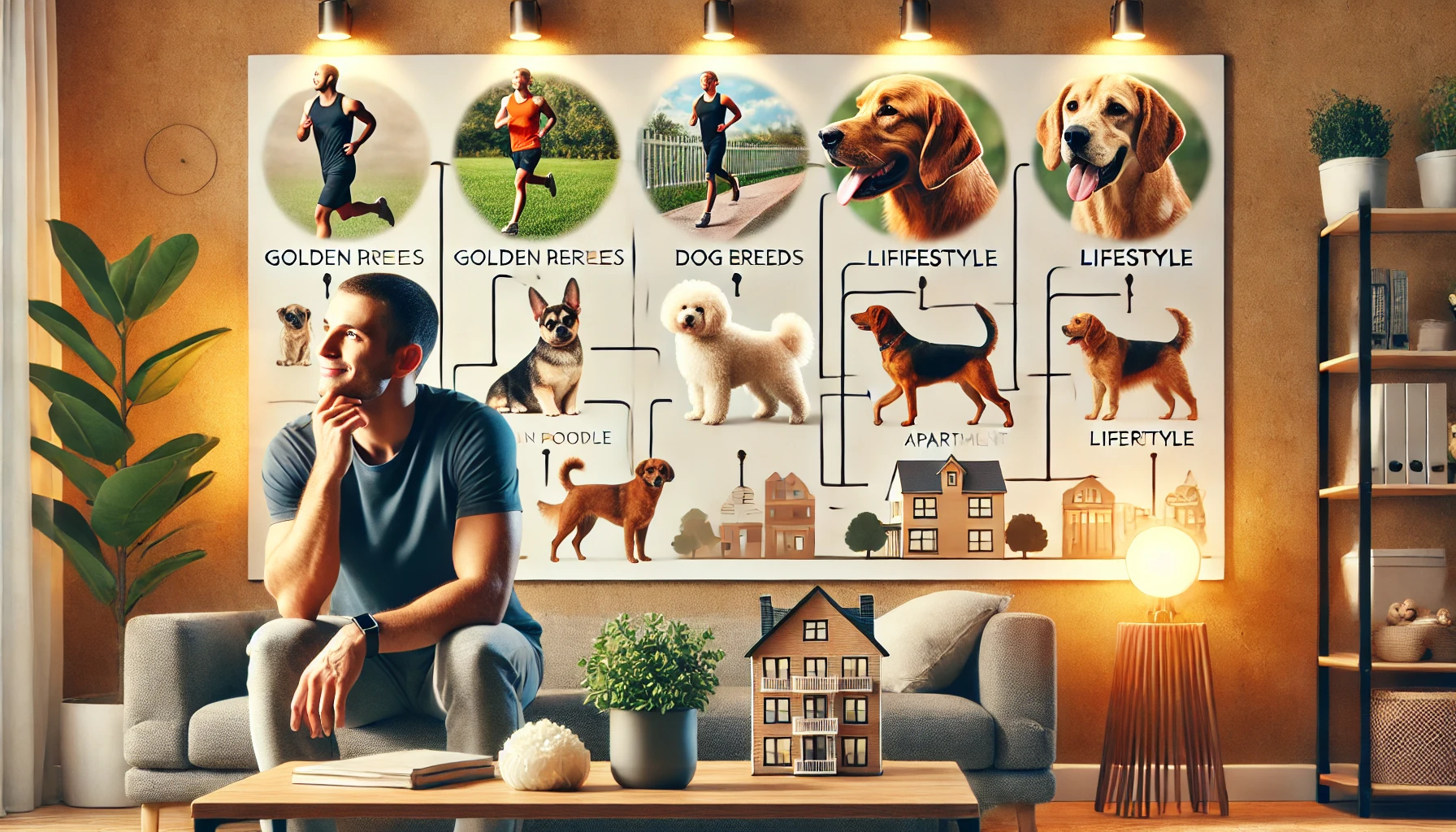Choosing the perfect dog breed for your lifestyle is one of the most critical decisions you’ll make as a pet owner. A mismatch can lead to frustration for both you and your furry friend, but with a little research and planning, you can find the ideal companion that fits seamlessly into your life. In this guide, we’ll break down the key factors to consider when selecting a breed, plus answer some of the most common questions new dog owners ask.
Factors to Consider When Choosing a Dog Breed
1. Your Living Space
- Apartment or Condo: Opt for smaller, low-energy breeds like French Bulldogs, Dachshunds, or Cavalier King Charles Spaniels.
- House with a Yard: Larger breeds like Golden Retrievers, Border Collies, or Labradors may be more suitable.
- Rural Setting: Active, working breeds like Australian Shepherds or Siberian Huskies thrive in open spaces.
2. Activity Level
- Active Lifestyle: If you enjoy hiking, running, or outdoor activities, consider high-energy breeds like Boxers, Vizslas, or German Shepherds.
- Moderate Activity: Breeds like Cocker Spaniels or Shih Tzus are perfect for a balanced level of play and relaxation.
- Low Energy: For couch potatoes, breeds like Bulldogs or Basset Hounds are great companions.
3. Family Dynamics
- Families with Kids: Look for patient and friendly breeds like Golden Retrievers, Labradors, or Beagles.
- Single Owners: Smaller, independent breeds like Chihuahuas or Boston Terriers may be a better fit.
- Seniors: Low-maintenance breeds like Pugs or Maltese are excellent choices.
4. Grooming Needs
- Low-Maintenance Coats: Breeds like Dobermans or Whippets require minimal grooming.
- Moderate Grooming: Breeds like Shetland Sheepdogs or Poodles need regular brushing.
- High Grooming Requirements: Breeds like Afghan Hounds or Shih Tzus need frequent grooming to keep their coats healthy.
5. Temperament and Personality
- Calm and Gentle: Great Danes, Newfoundlands, or Irish Setters.
- Playful and Energetic: Jack Russell Terriers, Australian Shepherds, or Border Collies.
- Protective: Rottweilers, Dobermans, or Akitas.
- Independent: Basenjis, Shibas, or Afghan Hounds.
6. Health Concerns
- Research breed-specific health issues to understand potential challenges. For example:
- Bulldogs are prone to respiratory problems.
- Dachshunds are at risk for back issues.
- German Shepherds may develop hip dysplasia.
7. Experience Level
- First-Time Owners: Breeds like Golden Retrievers, Poodles, or Cavalier King Charles Spaniels are easy to train and adaptable.
- Experienced Owners: More independent or stubborn breeds like Siberian Huskies or Shiba Inus may require extra patience.
How to Narrow Down Your Options
- Research Breeds: Use trusted resources like the American Kennel Club (AKC) or reputable breeder websites to learn about breed traits.
- Consider Adopting: Mixed breeds from shelters often have wonderful temperaments and fewer health issues.
- Visit Dog Shows or Breeders: Meet the breeds in person to see if they fit your lifestyle.
- Consult Experts: Speak with vets or experienced trainers for advice on breed selection.
Top Tools for Finding Your Perfect Breed
- Dog Breed Selector Tools: Websites like AKC or Petfinder offer online quizzes to match you with breeds based on your preferences.
- Books and Guides: Consider purchasing detailed breed-specific books for further insights.
- Mobile Apps: Apps like “Pawfect Match” can also help narrow your choices.
FAQs: Choosing the Right Dog Breed
1. What’s the best dog breed for a small apartment?
Small, low-energy breeds like Pugs, French Bulldogs, or Yorkshire Terriers are ideal for apartments due to their compact size and adaptability.
2. Can I own a high-energy breed if I have a busy schedule?
Yes, but you’ll need to ensure they get sufficient exercise. Consider hiring a dog walker or enrolling them in doggy daycare to meet their activity needs.
3. Are mixed breeds a good option?
Absolutely! Mixed breeds often combine the best traits of multiple breeds and may have fewer health problems due to genetic diversity.
4. How do I know if a breed is good with children?
Research breed temperaments and speak with breeders or shelters. Breeds like Golden Retrievers, Labradors, and Collies are known for their patience and gentleness with kids.
5. What if I have allergies?
Look for hypoallergenic breeds like Poodles, Bichon Frises, or Portuguese Water Dogs, which produce less dander.
6. How can I ensure I’m getting a healthy dog?
Always adopt from reputable breeders or shelters. Look for health clearances and ensure the puppy’s parents were screened for common genetic issues.
Conclusion
Choosing the right breed for your lifestyle is about finding the perfect balance between your needs and your future dog’s traits. Take the time to evaluate your living situation, activity level, and preferences. With the right match, you’ll gain a loyal, loving companion who will enrich your life for years to come.









